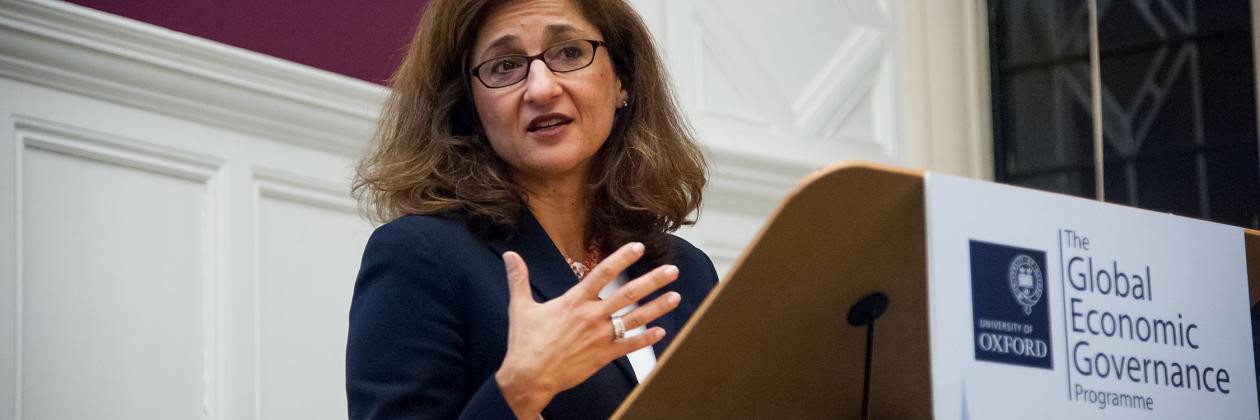Deputy IMF Director Gives GEG 10th Anniversary Lecture
In the GEG 10th Anniversary Annual Lecture, Dr Nemat 'Minouche' Shafik, Deputy Managing Director of the IMF, set out her vision for how smart governance can help us create a more resilient, more prosperous and more equitable global economy.
In her lecture, Dr. Shafik noted that in the past, crises have been an opportunity for reform of global governance, noting that the Bretton Woods institutions were created in the aftermath of the Second World War. While the recent financial crisis has resulted in some reform, more are needed. However time is running out – the window of opportunity will soon close and the reform agenda should be seized.
Turning to the question of what form of global governance is needed, Dr. Shafik drew a distinction between hard governance (enforceable treaties and laws) and soft governance (voluntary standards and codes of practice). While some observers point toward plurilateralism and the rise of soft global governance as a threat to the traditional pillars of hard global governance, including the IMF, she did not share this view.
Arguing against a one-size-fits-all approach, Dr. Shafik advocated ‘smart governance’. This is a hybrid form of global governance that mixes hard and soft forms, is issues-driven and responsive to the political and economic context. She suggested that soft governance works best when innovation is needed, there is time to act, when getting a subset of countries to act is sufficient, and ad hoc implementation can work. Hard governance is needed in a crisis or when global approaches are needed and when consistent enforcement is key.
The full text of her speech can be found here.
Dr. Shafik assumed the position of Deputy Managing Director of the International Monetary Fund on April 11, 2011. A national of Egypt, the U.K., and the U.S., Ms Shafik was previously the youngest-ever Vice President at the World Bank and the Permanent Secretary of the U.K. Department for International Development (DFID).





